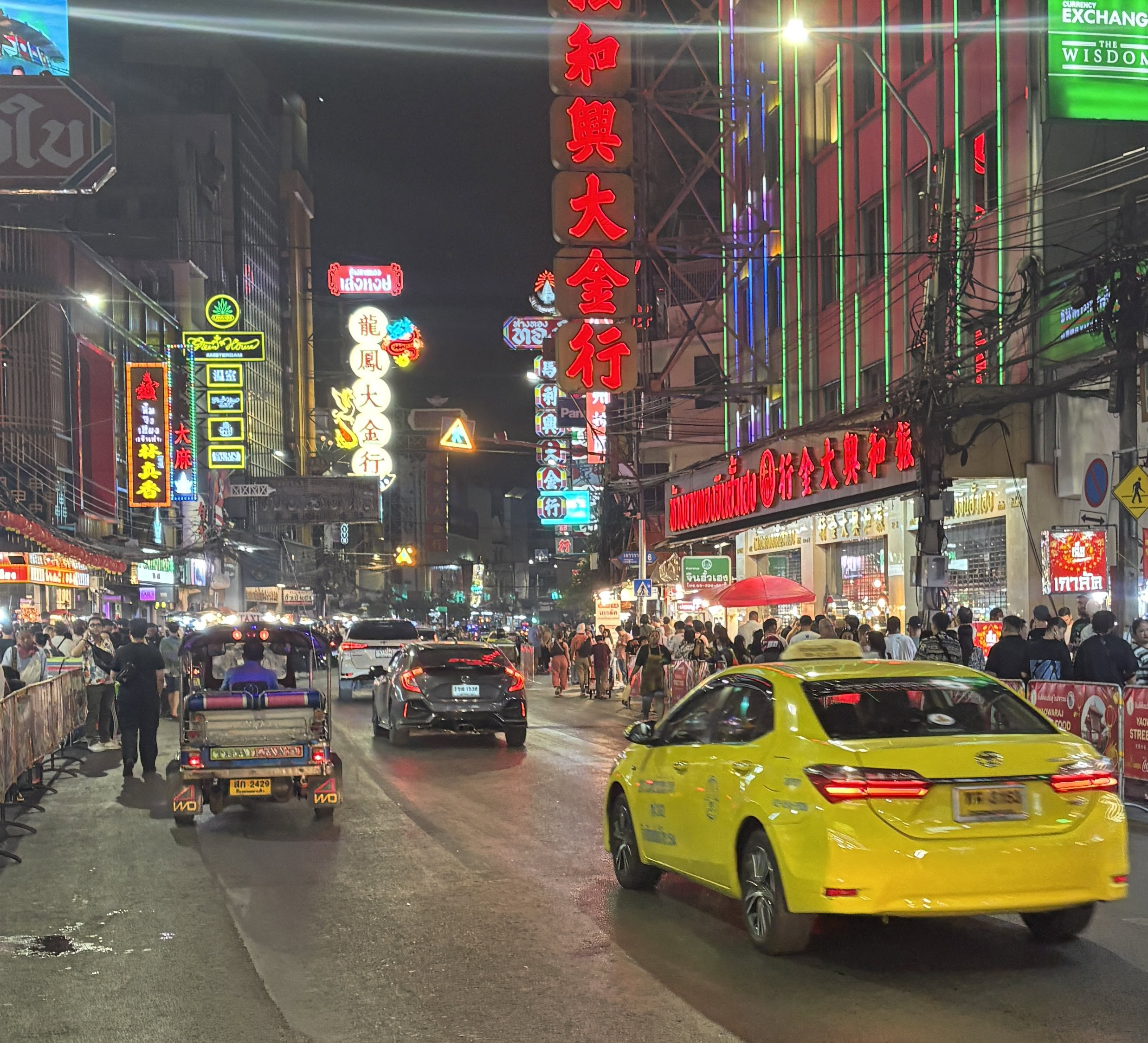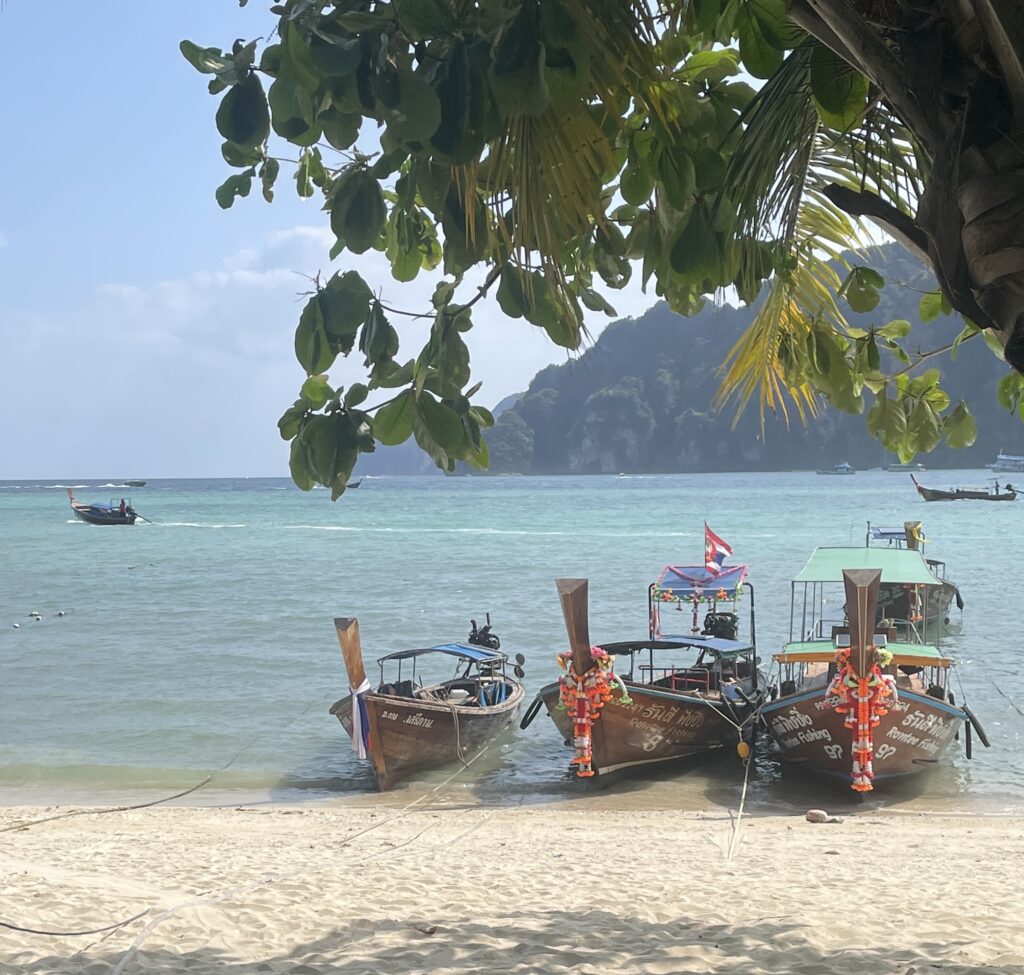22 Travel Tips for Thailand You Must Know
Planning a trip to Thailand is exciting with golden temples, buzzing night markets, tropical beaches, and some of the best food in the world.
But with all the excitement comes the reality that traveling in a new country can feel overwhelming if you’re not prepared. That’s where a few smart travel tips can make all the difference.
Thailand is one of the most welcoming and easy-to-travel countries in Asia, but like anywhere else, there are things first-time visitors might not know. From getting around efficiently to understanding local etiquette to avoiding common tourist mistakes, a little preparation goes a long way.
These are tips I’ve picked up both before visiting and throughout my many trips to Thailand. Keeping them in mind will make your travels much smoother as you explore this amazing country with so much to see, do, and experience.
Here are 22 essential travel tips for Thailand that will make your trip smoother, safer, and even more memorable.
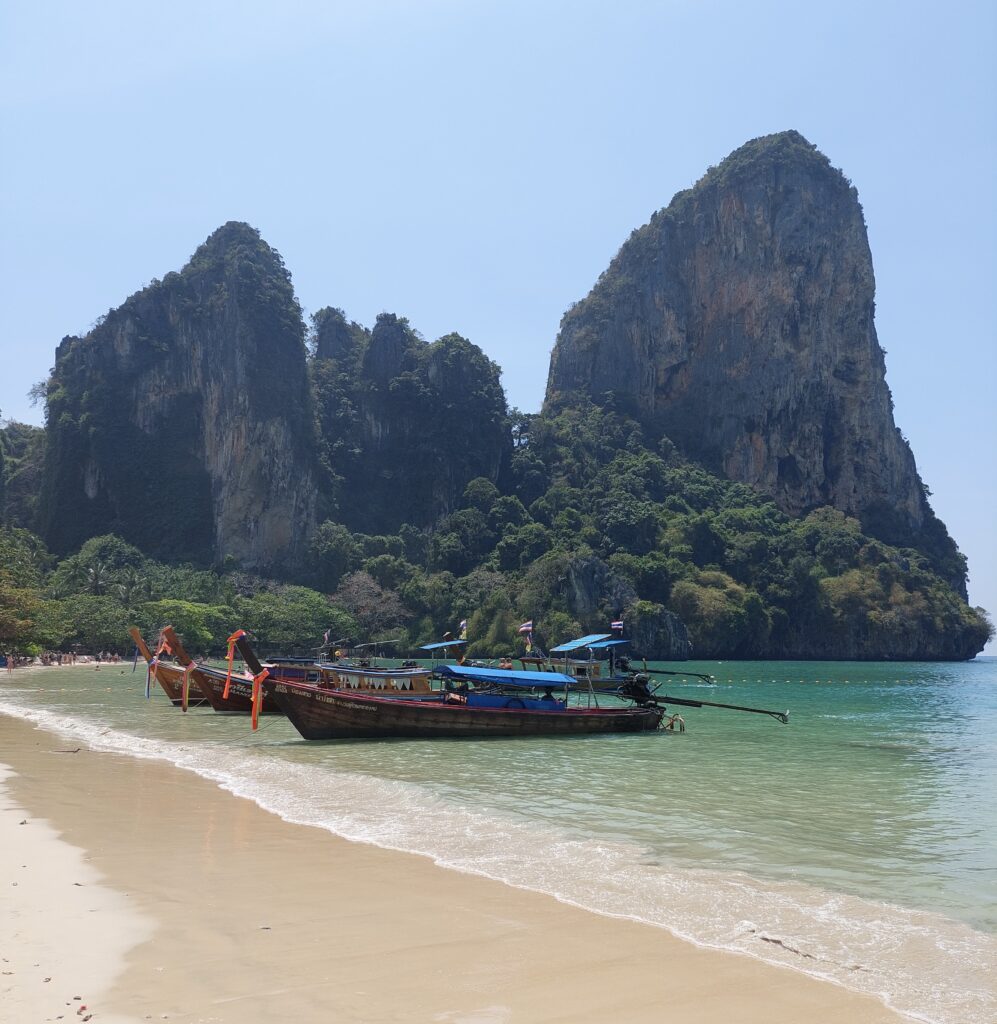
Essential Travel Basics for Thailand
Pack Light but Smart
Thailand’s climate is hot and humid almost year-round, so you won’t need heavy clothing. Stick to breathable fabrics like cotton or linen, and pack outfits that can be mixed and matched. My Thailand packing list covers all the essentials you’ll want to consider.
A light rain jacket or poncho is helpful during the rainy season, and comfortable sandals or sneakers are essential for walking through markets and temples.
Keep in mind how long your trip is; there’s no need to overpack. Laundry services are available everywhere in Thailand; they’re inexpensive, and the turnaround is usually within a day.
This means you can travel lighter, use those services often, and save space in your bag for souvenirs or anything else you pick up along the way.
Don’t forget the small essentials that make life easier: sunscreen, insect repellent, and a reusable water bottle. If you plan to visit islands or go on boat tours, a dry bag will save your electronics from water damage.
Carry Some Cash Alongside Cards
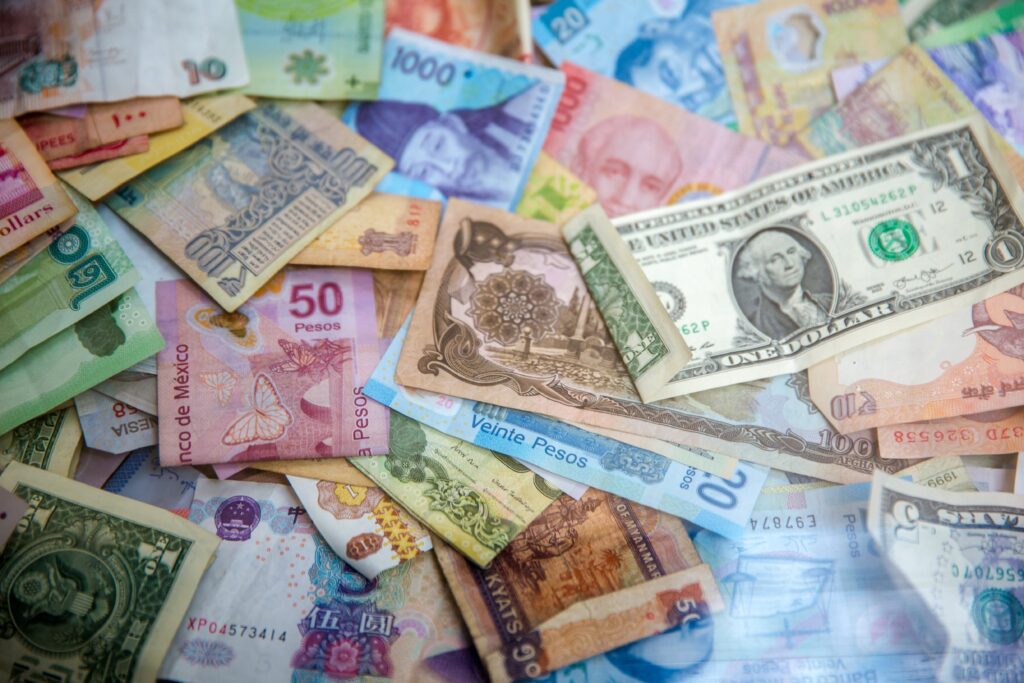
Thailand is modern in many ways, but cash is still king in plenty of situations. Street food stalls, tuk-tuks, small markets, and even some guesthouses may not accept cards.
ATMs are everywhere, but withdrawal fees are high, so it’s better to take out larger amounts less frequently.
I travel with around US$250 in cash as emergency money and three different cards. I recommend carrying at least two cards, keeping one safely at your hotel, and taking the other with you just in case.
This way, you’re covered whether you need cash at a market or can pay by card at a larger restaurant.
Respect the Dress Codes at Temples

Thailand’s temples are breathtaking, but they’re also sacred places of worship. To enter, you’ll need to cover your shoulders and knees.
Lightweight pants, long skirts, or a scarf to drape over your shoulders work perfectly.
If you show up in shorts or a tank top, expect to be turned away or asked to rent a cover-up.
Learn a Few Thai Phrases
You don’t need to be fluent in Thai to get around, but learning a few simple Thai phrases for your trip will plenty useful.
A polite greeting is “Sawasdee krub” if you’re male, or “Sawasdee ka” if you’re female. The same goes for “Khob khun krub/ka” (thank you).
Adding that small gendered ending is a cultural sign of respect, and locals will instantly notice the effort.
Even just these basics can make interactions warmer and more genuine, and you’ll find people often smile back with extra kindness when you try.
Getting Around Thailand
Use Ridesharing Apps Instead of Taxis
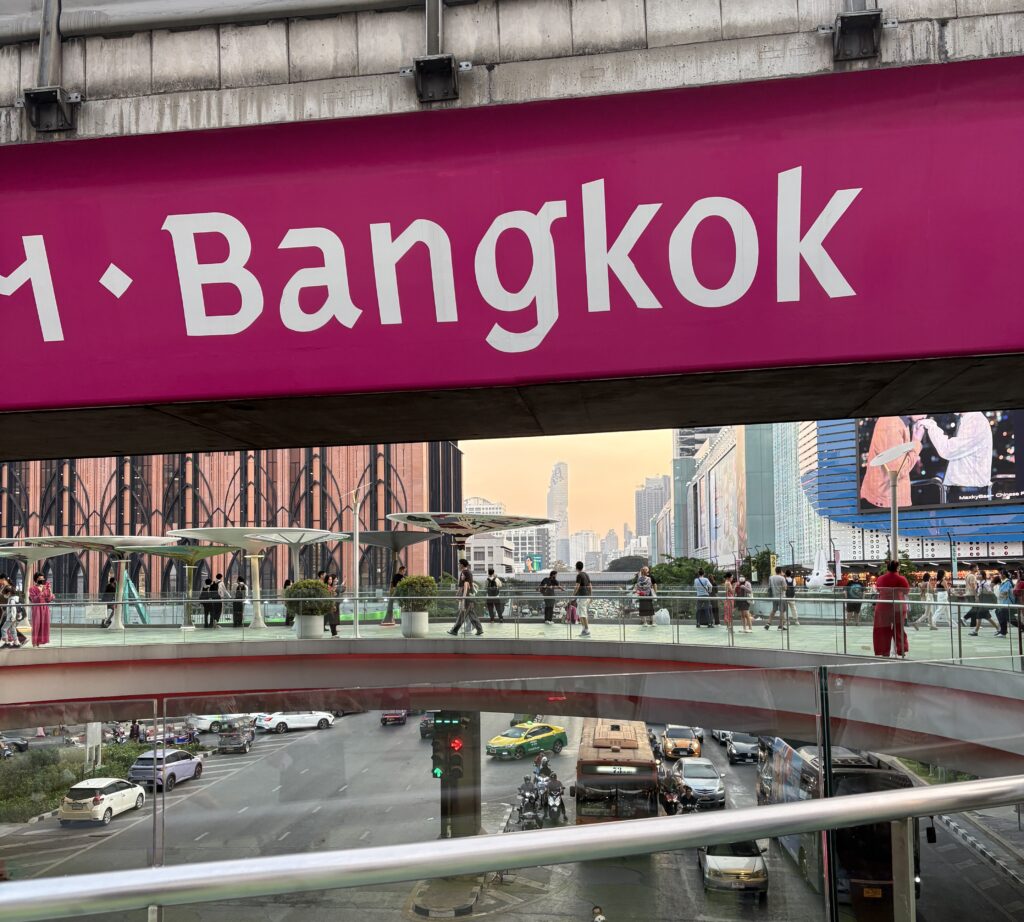
Getting around Thailand is easy, but taxis can sometimes overcharge, especially in tourist-heavy areas.
Grab is the most popular ridesharing app, with the largest number of drivers, making it the most reliable option. Bolt is another good choice, often a bit cheaper than Grab, though sometimes about the same price.
InDrive is unique because it lets you negotiate fares directly in the app with the driver.
That said, not every taxi driver will overcharge you; make sure the meter is turned on or that you agree on a price before starting the ride. Here’s a handy list of apps for Thailand to download for your trip.
Be Cautious When Renting Scooters
Renting a scooter in Thailand is easy and common, but the issue comes down to licenses.
Technically, you’re required to have an international driver’s license, though many rental shops won’t ask for it.
The problem is that traffic police will stop you, and if you don’t have one, you’ll end up paying a fine. On top of that, if you’re involved in an accident, your travel insurance won’t cover you if you weren’t driving legally.
If you’re inexperienced, keep in mind that Thailand isn’t the best place to learn. Busy roads, unpredictable drivers, and sudden rain make conditions tricky. Unless you’re confident and properly licensed, scooters can be more risk than reward.
Take Advantage of the Local Songthaews
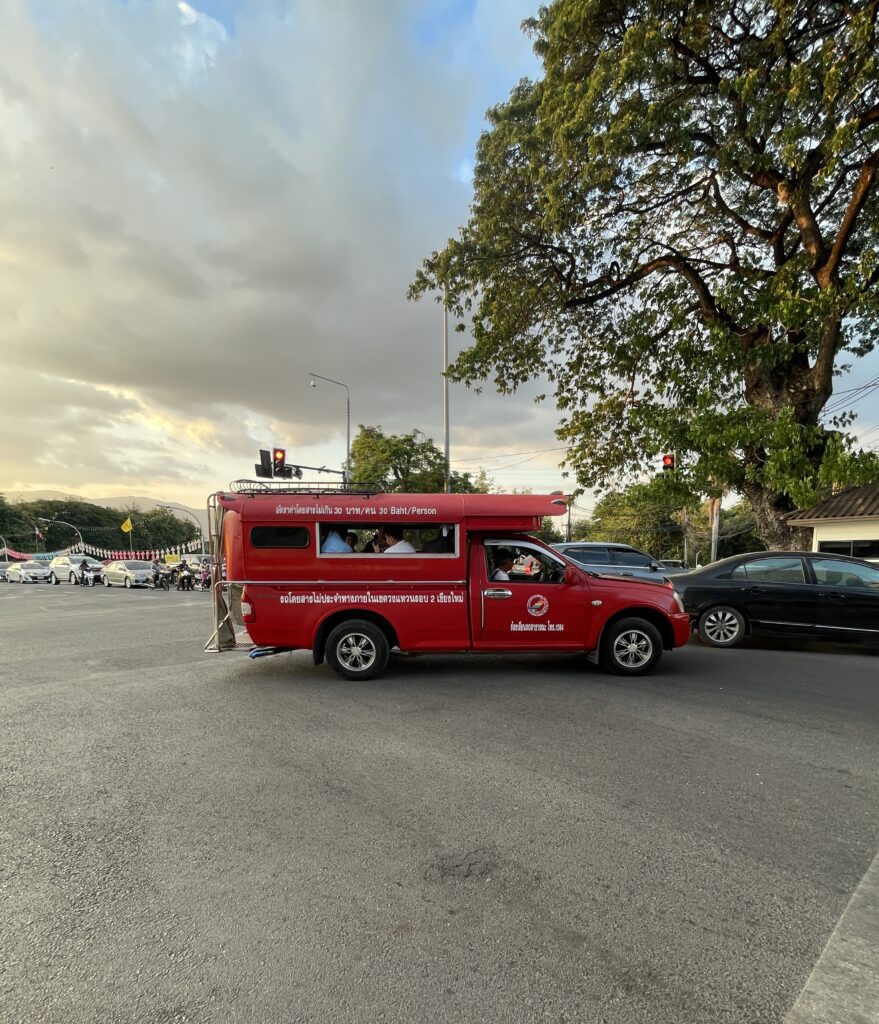
Songthaews are one of Thailand’s most budget-friendly ways to get around. These shared pickup trucks act like local buses, following set routes and stopping when you flag them down.
They’re usually only known and used by travelers who’ve spent time in Thailand, but they’re awesome once you figure them out. Riding them gives you a taste of authentic local life, since this is the closest thing many cities outside Bangkok have to “public transportation.”
Keep in mind that they operate differently depending on the city. In Chiang Mai, for example, you’ll see red ones everywhere, while in other areas they may be blue or another color.
Before hopping on, make sure you know the rough price and how the system works in that city, then pay the driver when you get off.
Domestic Flights Can Save Time
Thailand may look small on the map, but buses and trains between cities like Bangkok, Chiang Mai, and Phuket can take 10–12 hours.
Sure, overnight buses and trains are an option, but if your trip is short, that travel time can eat into your experience.
For first-time visitors, flying is the better choice. Budget airlines like AirAsia, Nok Air, and Thai Smile offer cheap flights, sometimes under $50, that get you across the country in just an hour or two.
If you’ve got weeks to spare, go ahead and try the bus or train for the adventure, but if time is limited, your best method to get around Thailand is to fly.
Tuk-Tuks Are Fun, But Agree on Price First
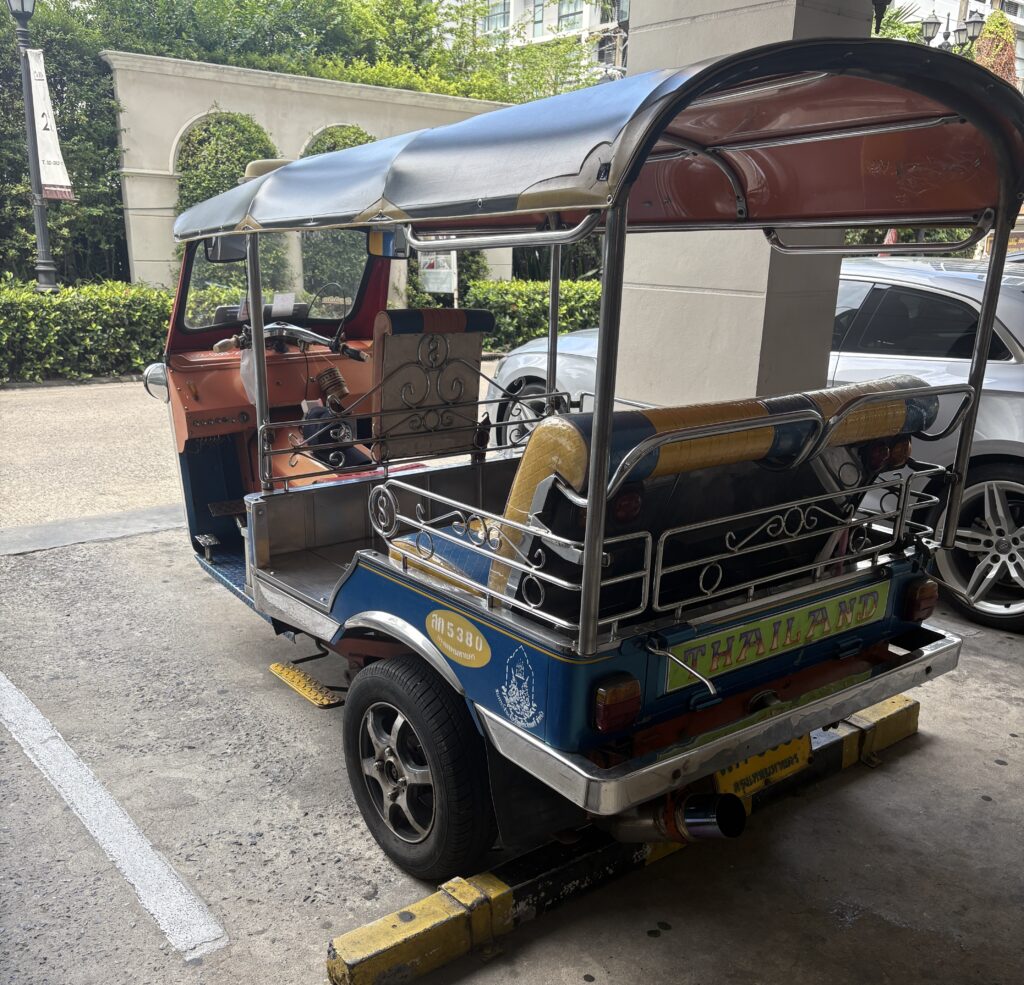
A tuk-tuk ride is one of the quintessential Thailand experiences. Sitting in the back of that uniquely shaped vehicle, zipping through traffic with the wind in your face, it’s something every traveler should do at least once. My first ride is still a core memory.
That said, tuk-tuks are also one of the easiest ways for tourists to get scammed. The most common issue is inflated prices, so always agree on a fare before hopping in.
Other scams in Thailand include drivers suggesting “shopping stops” at gem or tailor shops, or worse, taking you to a completely different destination.
To avoid problems, politely decline detours and keep Google Maps open for the first few minutes of your ride so you know you’re on track. Done right, a tuk-tuk ride is a fun, authentic experience. Just be smart about it.
Food & Drink Tips in Thailand
7-Eleven Stores in Thailand Are a Lifesaver
If there’s one place in Thailand you’ll find yourself relying on more than you expected, it’s 7-Eleven, and not just for snacks.
These stores are literally everywhere, and they stock nearly everything you might need while traveling: cold drinks, ready-to-eat meals, toiletries, chargers, bug spray, SIM cards, painkillers, you name it, it’s there!
Whether you’re in a big city or a small beach town, chances are there’s a 7-Eleven just around the corner.
It’s also where you’ll find some of the Thailand 7-Eleven snacks you MUST try, from melty toasties to creamy milk puffs, the snack game here is next level.
Don’t be surprised if 7-Eleven becomes part of your daily routine, trust me, it will be!
Ease in Your Stomach When Arriving
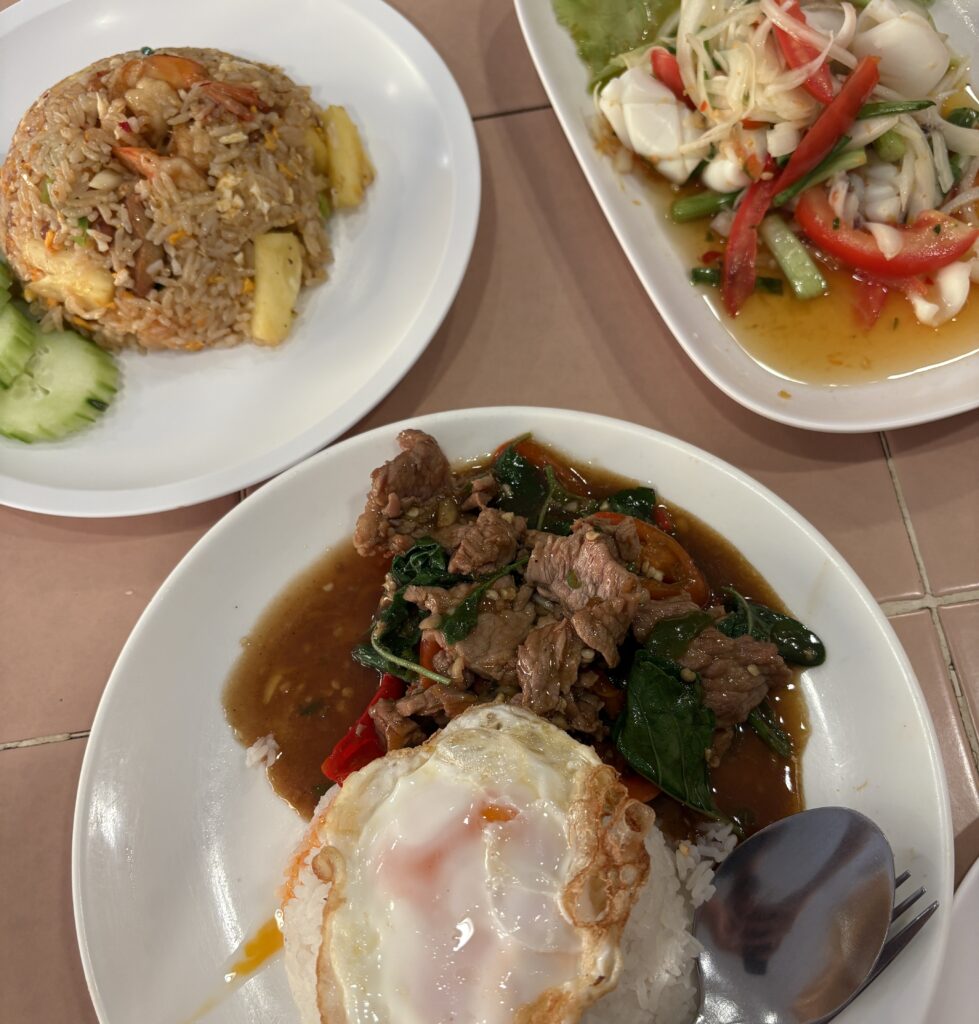
When you first land in Thailand, your stomach might need some time to adjust. The local spices, oils, and even bacteria are different from what you’re used to, so it’s best not to dive straight into every raw salad or spicy soup right away.
Start with simple cooked meals like fried rice, grilled chicken, or pad Thai for the first day or two.
Once your body adjusts, you’ll be ready to enjoy everything from som tam (papaya salad) to fiery curries. It’s not about skipping Thai food; it’s about easing yourself into it so you can enjoy it fully without cutting your trip short with stomach issues.
For more on staying healthy while enjoying the street food scene, check out my guide on food safety in Thailand.
Stick to Bottled Water
Tap water in Thailand isn’t safe to drink, so always stick with bottled water. Luckily, it’s cheap and available everywhere, from 7-Eleven to small corner shops.
Most hotels also provide a few complimentary bottles daily, so stock up before heading out. Use bottled water for brushing your teeth, too, just to be safe.
It’s a small habit that makes a big difference in avoiding food poisoning or stomach problems during your trip.
Be Careful With Ice in Rural Areas
In big cities like Bangkok, Chiang Mai, or Phuket, most restaurants and cafés use factory-made ice that’s safe.
But in smaller towns or rural areas, ice can sometimes come from untreated water. Stick to cylinder-shaped ice with a hole in the middle, that’s the factory kind.
Don’t Skip Local Daytime Markets or Night Markets
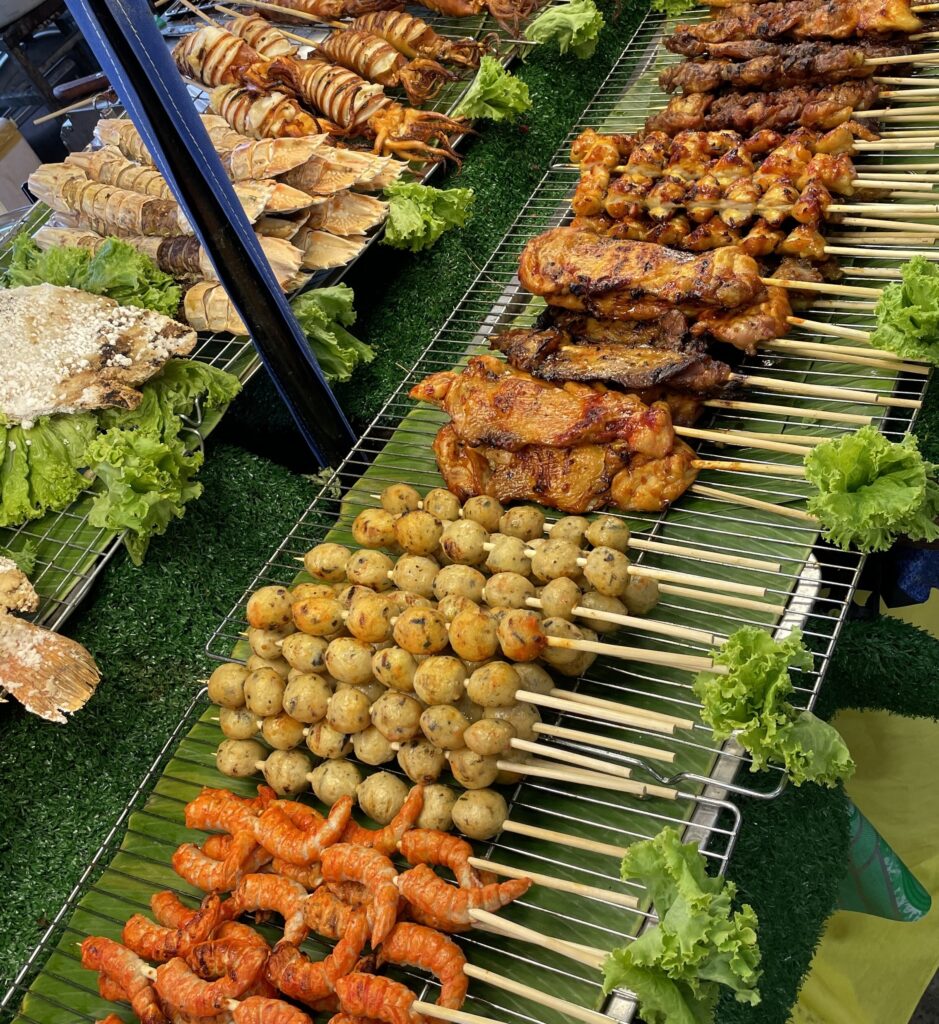
Night markets in Thailand are a huge part of Thai culture, and skipping them would mean missing one of the country’s best experiences.
From sizzling street food to handmade crafts and live entertainment, they’re an absolute must. Just stick to stalls with high turnover, and you’ll enjoy the food safely.
Adjust to Spice Levels Slowly
Thai food is famous for its fiery kick, but if you’re not used to it, going all-in right away can upset your stomach.
Start mild and build up gradually. You’ll still get all the flavor, and your stomach will thank you.
If it’s your first trip, focus on the must-try Thai food for first-time visitors, dishes like pad Thai, mango sticky rice, or a flavorful but not overly spicy green curry. These classics give you a great introduction to Thai cuisine without overwhelming your taste buds.
Once you’ve adjusted to the spices, you can start branching out to bolder dishes like tom yum soup or spicy papaya salad for the whole experience.
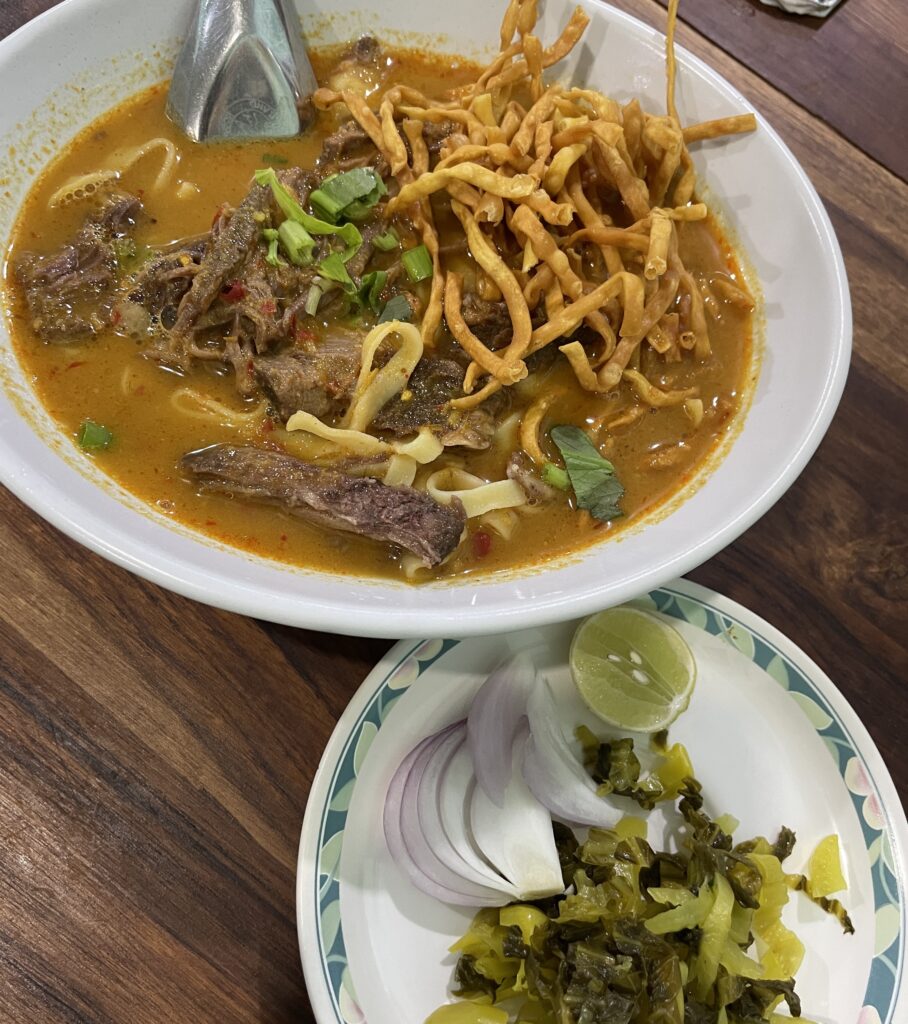
Culture & Etiquette in Thailand
Always Take Off Shoes Indoors
It’s standard practice in Thailand to remove your shoes before entering homes, temples, and even some shops or guesthouses.
If you see a pile of shoes outside, that’s your cue. Wearing shoes inside can be seen as disrespectful, and it’s one of those small but essential cultural details that fall under the common don’ts in Thailand every traveler should be mindful of.
Show Respect to Monks and Temples
Buddhism is at the heart of Thai culture, and monks are highly respected. Always dress modestly when visiting temples, keep your head lower than monks during interactions, and never touch them.
Women, in particular, should avoid any physical contact with monks. Even something as simple as offering a respectful wai (palms together with a slight bow) shows great courtesy.
Be Mindful at Temples, It’s a Place of Worship
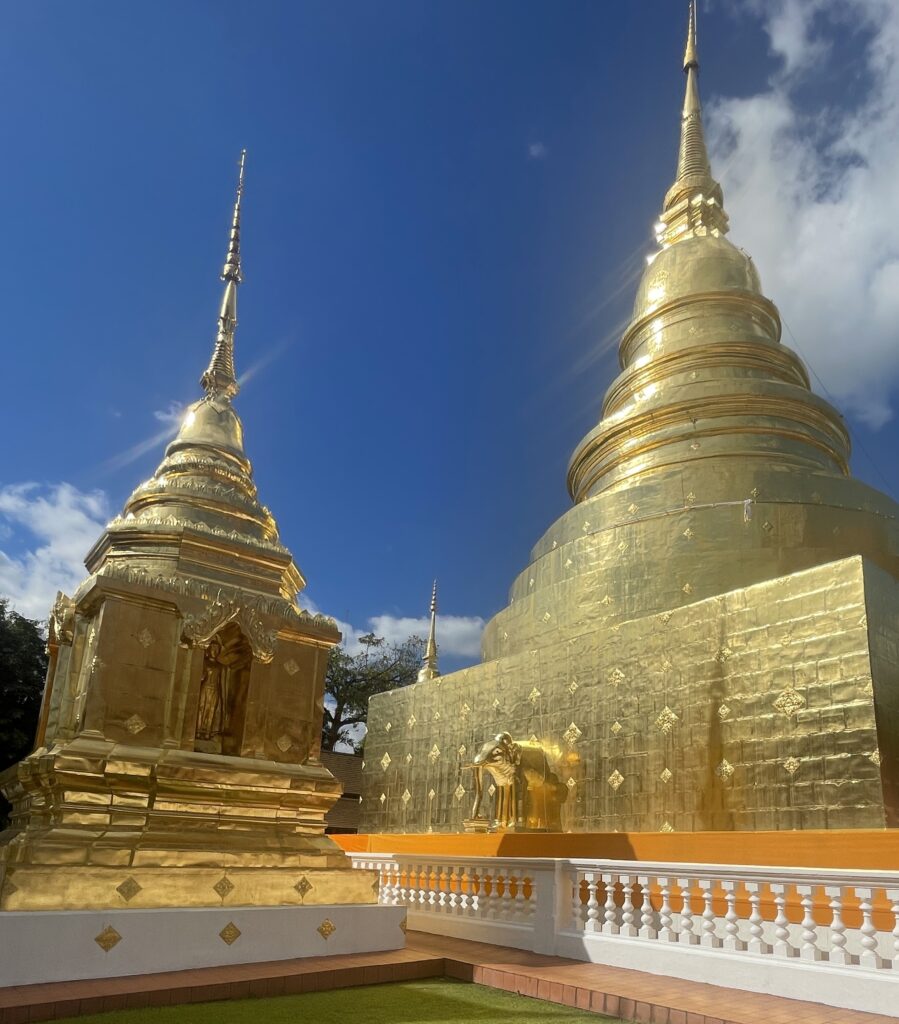
Buddhism is at the heart of Thai culture and etiquette, and monks are highly respected. Always dress modestly when visiting temples, keep your head lower than monks during interactions, and never touch them.
Women, in particular, should avoid any physical contact with monks. Even something as simple as offering a respectful wai (palms together with a slight bow) shows great courtesy
Use Both Hands When Giving/Receiving
In Thailand, using both hands to pass or receive something, whether it’s money, a business card, or even a small gift, is a sign of respect.
It’s a subtle gesture, but it goes a long way in showing good manners. While locals may not expect foreigners always to get it right, making the effort reflects well and helps you blend in with Thai etiquette.
Smile Often — It Goes a Long Way
Thailand isn’t called the “Land of Smiles” for nothing. A friendly smile is one of the simplest and most powerful ways to connect with locals.
You’ll notice pretty quickly that the overall energy in Thailand is upbeat and positive. Whether you’re walking through a night market, joining a tour, or just passing by people on the street, there’s often a sense of warmth and friendliness.
Of course, like anywhere, people have stressful moments, but smiles are ordinary, and returning one (or being the first to give it) goes a long way.
It’s a small gesture, but one that genuinely makes your travels smoother and more enjoyable.
Safety & Smart Travel Tips
Watch Out for Common Scams
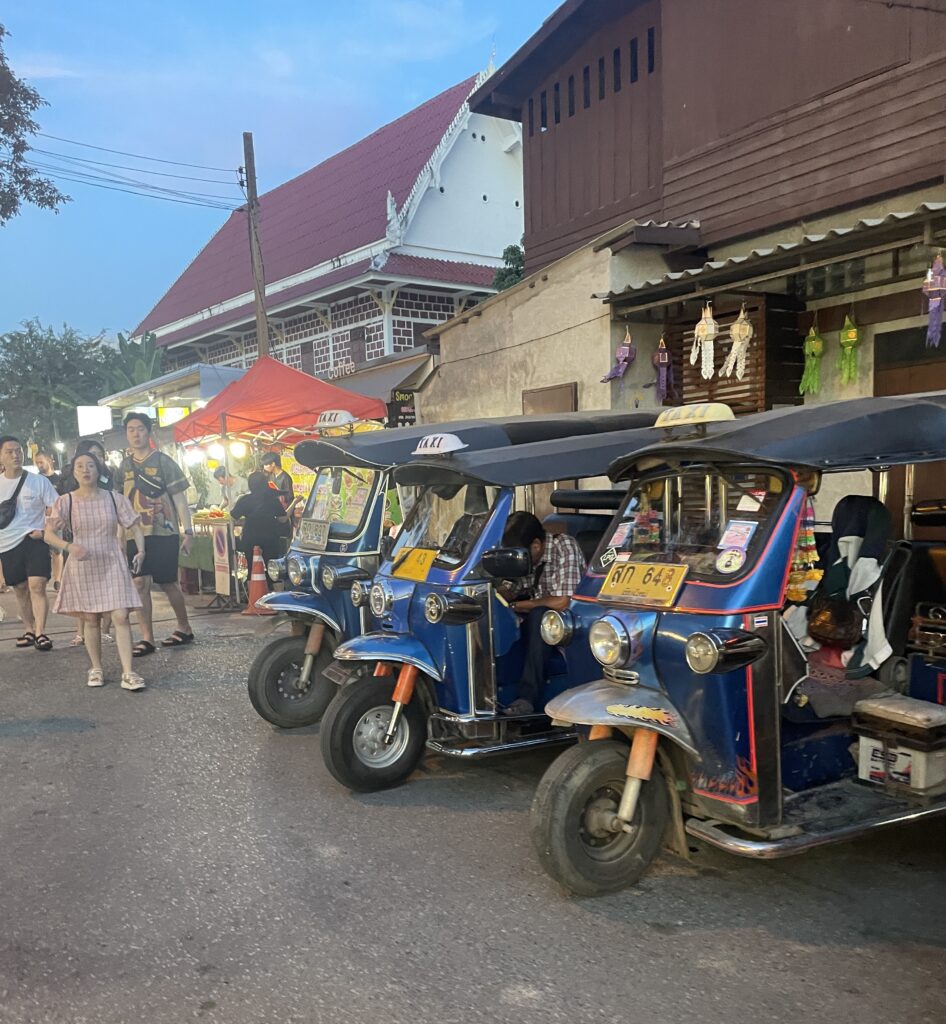
Thailand is generally safe, but like many tourist destinations, scams do exist. The most common ones involve tuk-tuk rides, gem shops, or tour deals that seem too good to be true.
A typical example is a tuk-tuk driver offering to take you on a “special tour” for a very low price, only to make stops at shops where they get a commission.
Another is someone telling you a popular temple is “closed today,” then steering you toward an alternative attraction where you’ll overpay.
The rule of thumb: if it feels suspiciously cheap or too convenient, there’s usually a catch. Trust your instincts, do a quick check on Google Maps, and don’t be afraid to walk away.
Use ATMs Strategically to Save on Fees
One of the most common mistakes travelers make in Thailand is underestimating ATM fees.
Every ATM in the country charges around 220 THB (about $6 USD) per withdrawal for foreign cards, and unfortunately, there’s no way to avoid this fee.
The best move is to plan your cash needs ahead of time. Instead of withdrawing small amounts often, take out what you’ll reasonably need for your trip, whether that’s for a week or just a few days, and balance it with card payments.
Knowing how much to budget for Thailand will help you avoid too many trips to the ATM.
Keep in mind that most ATMs have a per-transaction limit of ฿10,000, though some allow up to ฿20,000. Emergencies happen, of course, but being mindful can save you from incurring unnecessary fees.
Get a Wise Card
If you travel often, a Wise card can feel like a lifesaver. It works almost like an international bank, letting you hold multiple currencies and exchange them at real market rates.
For example, I keep both Canadian and US dollars in my account, and when I’m in Thailand, I convert funds to Thai baht in the app.
From there, I can pay directly with the card or withdraw cash at ATMs when needed, all without carrying around large amounts of money or getting hit with poor exchange rates.
Paired with the ATM strategy mentioned earlier, it’s one of the smartest ways to manage money while traveling in Thailand.
Be Mindful at Beach Parties
Thailand’s beach parties, from Koh Phangan’s famous Full Moon Party to smaller local gatherings, are unforgettable experiences.
The music, fire shows, and energy make them a must-do for many travelers. But they’re also crowded, chaotic, and a hotspot for pickpockets or scams. Keep your valuables minimal, stick with friends, and always watch your drinks.
Another thing to be aware of is the presence of undercover police. These parties often have illegal substances floating around, and you don’t want to get caught in a sticky situation.
Thailand’s drug laws are stringent, and what might seem harmless to some travelers can land you in serious trouble here. Play it safe, enjoy the music and atmosphere, and avoid anything that could ruin your trip.
Keep an Eye on Your Belongings
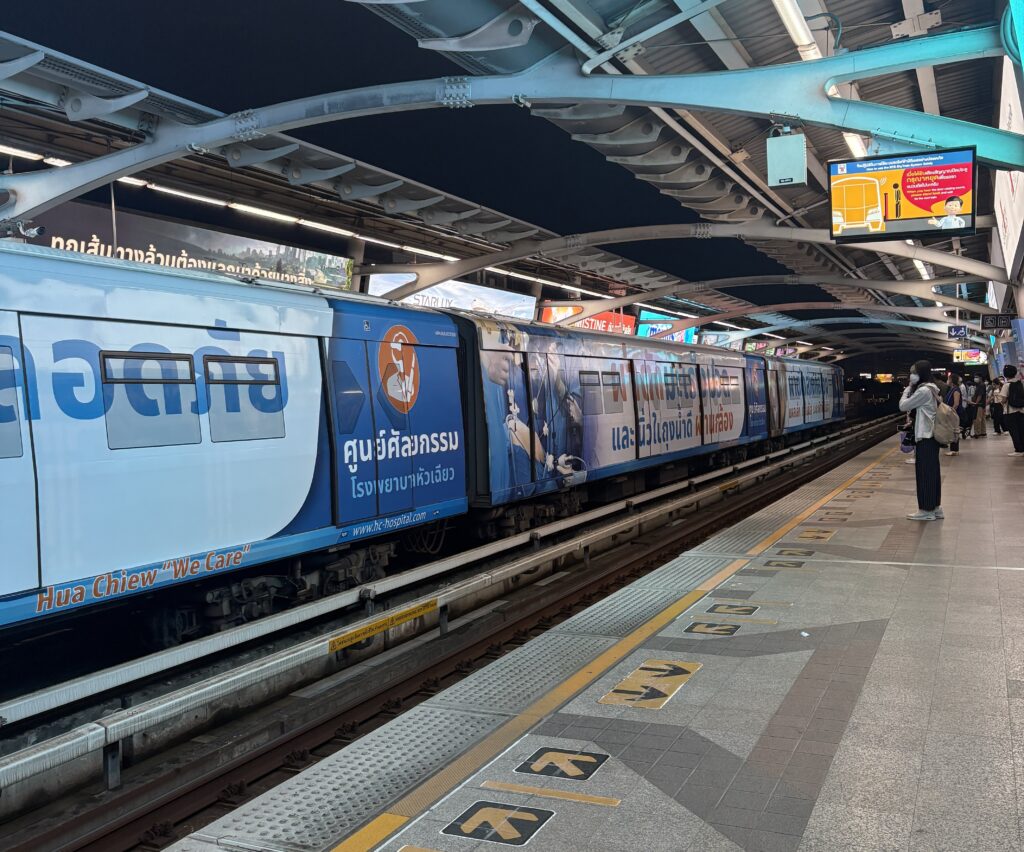
Thailand is safe compared to many destinations, but petty theft, like pickpocketing and bag snatching, can happen, especially in crowded areas such as night markets, busy streets, or bus stations.
Use a crossbody bag that zips shut, and keep your valuables close to your body. On overnight buses or trains, keep essentials like your passport, wallet, and phone in a small bag that stays with you.
It’s not about being paranoid, just staying mindful so you don’t give opportunistic thieves an easy chance.
Know Emergency Numbers in Thailand
It’s easy to get caught up in the excitement of traveling and forget practical details, but knowing a few key emergency numbers can make all the difference.
In Thailand, the general emergency number is 191 , while the tourist police can be reached at 1155.
The Tourist Police are specifically there to help visitors and often speak English, making them a valuable resource if you find yourself in trouble or need assistance.
Whether it’s an accident, theft, or any unexpected situation, having these numbers saved in your phone can give you peace of mind throughout your trip.
Thailand Travel Tips: Final Takeaways
In general, Thailand is one of the easiest countries for travelers to visit. Whether you’re a seasoned globetrotter or it’s your very first trip abroad, things here are straightforward, locals are welcoming, and you’ll quickly find your rhythm. There’s really nothing to stress about, even for first-time travelers.
That being said, these Thailand travel tips will surely make your journey smoother. From navigating transport and handling money to respecting local customs and knowing how to stay safe, each small detail helps you feel more confident on the road.
The goal isn’t to overcomplicate your trip, but to travel smarter so you can fully enjoy everything Thailand has to offer.
Follow these tips, and you’ll avoid common mistakes in Thailand while opening yourself up to the best experiences this incredible country has waiting for you. Have a wonderful visit!
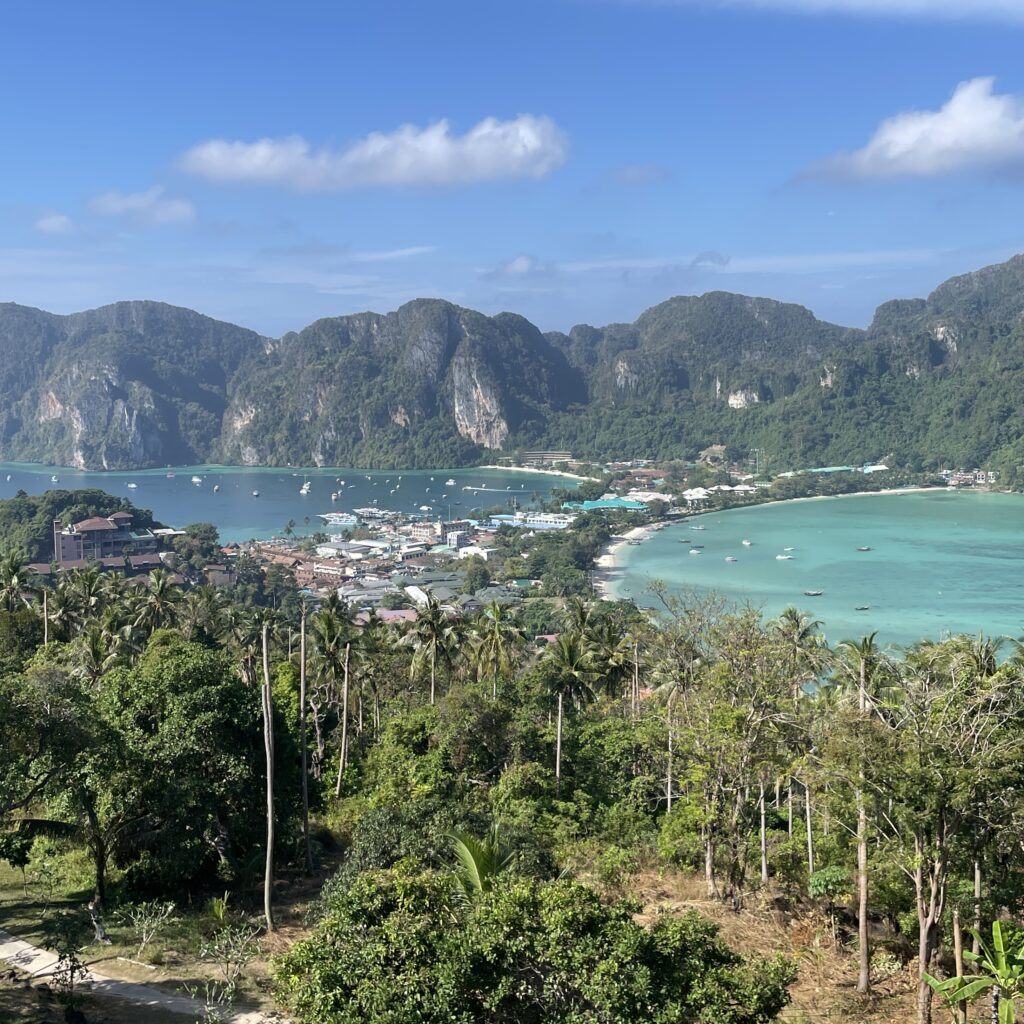
Do I need a visa to travel to Thailand?
Depending on your nationality and the purpose of your trip, you may need a tourist visa to enter Thailand.
Many visitors from visa-exempt countries can stay up to 30 days (currently it’s 60 days), but it’s important to check your passport requirements well ahead of your travel dates.
Is it safe to drink tap water in Thailand?
No, the tap water in Thailand generally isn’t safe to drink. Stick to sealed bottled water (even for brushing your teeth!) and be cautious with ice in rural areas. For detailed tips, refer to the food & drink safety section above.
What’s the best way to get around Thailand?
Transportation varies based on where you are and how you prefer to travel. In cities, ridesharing apps like Grab or Bolt are reliable, while songthaews offer budget-friendly local transit. For longer distances, consider domestic flights to save time on your itinerary.
Is Thailand safe for tourists?
Thailand is considered a safe destination overall, especially for visitors who stay aware of their surroundings and follow common-sense precautions. Just be cautious in crowded places, use reliable transportation, and always respect local customs.

